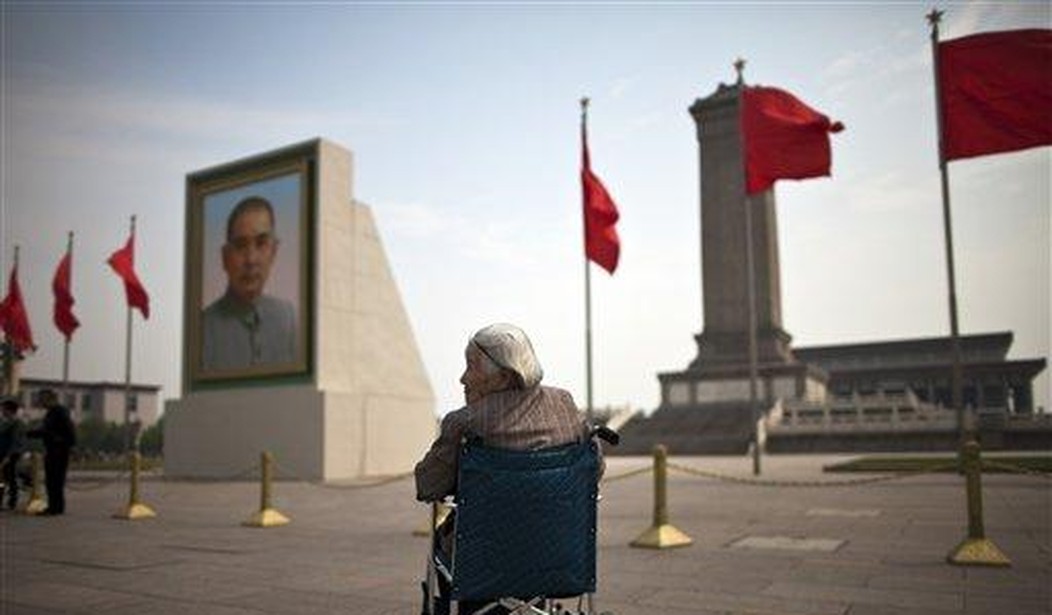There were a bunch of stories earlier this week highlighting the fact that, in the coming months, China will no longer be the nation with the largest population on earth. Instead, India will become the most populous nation sometime this summer.
India is set to surpass China as the world’s most populous nation, with almost 3 million more people by the middle of this year, data released by the United Nations on Wednesday showed.
Based on the projections, India’s population by mid-year will reach 1.4286 billion, compared to China’s 1.4257 billion – 2.9 million fewer – according to the United Nations Population Fund’s (UNFPA) “State of World Population Report” for 2023…
China has held the distinction of most populous country since at least 1950, when the UN population records began.
But the shift isn’t happening simply because India is outgrowing China. In fact, it’s happening because China’s population is declining. In 2022, it’s population declined for the first time in 60 years.
The population fell in 2022 to 1.411 billion, down some 850,000 people from the previous year, China’s National Bureau of Statistics (NBS) announced during a Tuesday briefing on annual data.
Analysts said the decline was the first since 1961 during the great famine triggered by former leader Mao Zedong’s Great Leap Forward.
“The population will likely trend down from here in coming years. This is very important, with implications for potential growth and domestic demand,” said Zhiwei Zhang, president and chief economist at Pinpoint Asset Management.
This decline is potentially a very big problem for the entire world given how many products are currently produced in China. But it will be worst of all for China starting with the country’s housing market which is a huge part of its overall economy.
In the short term, a plunging birthrate poses a major threat to China’s real estate sector, which accounts for roughly a quarter of the country’s economic output. Population growth is a key driver of housing demand, and homeownership is the most important asset for many Chinese people. During widespread pandemic lockdowns that dampened consumer spending and export growth, China’s economy became even more dependent on the ailing housing sector.
And then there’s China’s pension fund, which just like in the US funds the retirement of older workers with the work of young ones. As the balance shifts toward more older workers and fewer younger ones to support them that creates a problem.
With fewer working-age people in the long run, the government could struggle to sustain an enormous population that is growing older and living longer. A 2019 report by the Chinese Academy of Social Sciences predicted that the country’s main pension fund would run out of money by 2035, in part because of the shrinking work force…
China also has some of the lowest retirement ages in the world, with most workers retiring by 60. The situation has put a tremendous strain not only on state pension funds, but also on the country’s hospital system.
Other countries are facing similar problems. In the past few weeks we’ve seen how the French reacted to a 2-year increase in the retirement age necessitated by the fact that the country can’t afford to fund the longer lives of current pensioners. But in China’s case all of this was very much self-inflicted. Their population didn’t decline naturally. It declined thanks to the country’s one-child policy which was put in place in the 70s.
China introduced the one-child policy in the late 1970s, arguing that it was necessary to keep population growth from reaching unsustainable levels. The government imposed onerous fines on most couples who had more than one child, and compelled hundreds of millions of Chinese women to have abortions. Many families favored boys over girls, often aborting baby girls or abandoning them at birth, resulting in a huge surplus of single men in the Chinese population.
The one-child policy ended in 2013 and since then China has been trying to encourage more births but it hasn’t worked. They are probably locked in to many more years of population decline.
Fortunately, Chinese state media is reacting to the news with the kind of grace and thoughtfulness we’ve all come to expect.
“The United States is stepping up efforts to contain China’s development and advocate further decoupling and found new hype points from the United Nations report,” CCTV said, adding that the West simply equated population size with development achievements.
“Such hype lacks a basic understanding of the law of population development. With the development of human society today, the decrease in birth rate and decline in willingness to bear children are common problems faced by the whole world,” CCTV said, adding that Western developed countries generally faced problems such as labour shortages.
‘Shut up, stupid!’ they explained.
Honestly, I’d be in a more celebratory mood about China’s difficulties and their outrage about it if only the US wasn’t facing the same problem. Our population growth was up a tiny bit last year after record lows during the pandemic, but that’s primarily because of immigration.








Join the conversation as a VIP Member